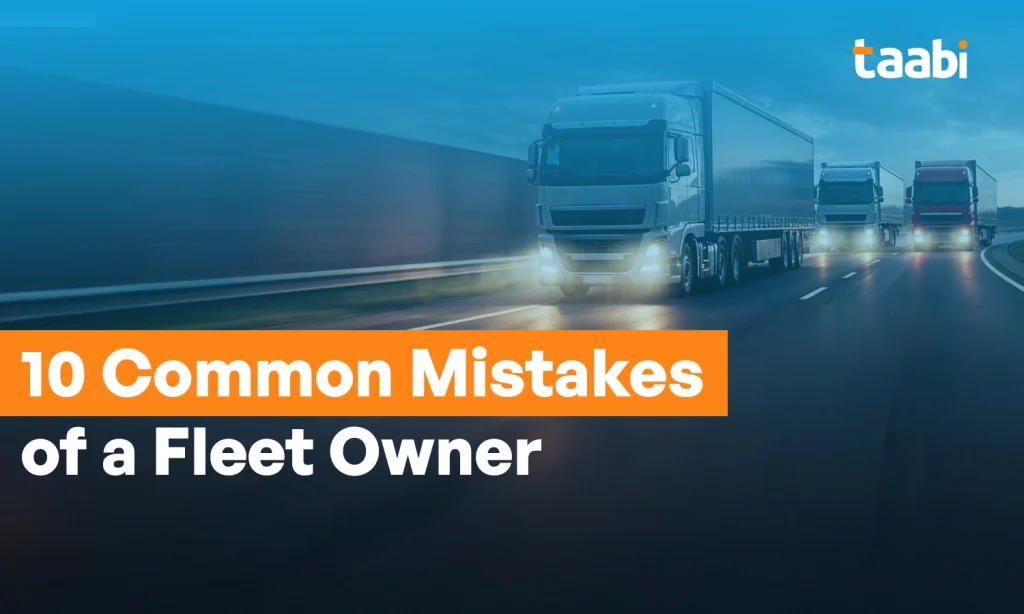Introduction
1. Skipping Preventive Maintenance
Effective fleet management ensures that every fleet owner operator maintains a digital maintenance log, tracks component life cycles, and schedules servicing proactively — not reactively; these all contribute to the Mistakes of a Fleet Owner
2. Poor Record-Keeping
3. Neglecting Tire Maintenance
4. Relying on Reactive Repairs
5. Insufficient Driver Training
Drivers are the front line of any fleet owner’s trucking business. Without proper training on safe driving practices, fuel efficiency, and early detection of mechanical issues, the overall fleet suffers.
A trained owner and operator team can extend vehicle life, minimize accidents, and improve fleet performance metrics.
6. Not Using Fleet Management Technology
7. Ignoring Legal and Compliance Requirements
8. Ineffective Communication
9. Overlooking Inspection Data
10. Underestimating Costs and Poor Expense Tracking
How To Overcome?
Conclusion
Whether you’re a small fleet owner or managing a larger operation, adopting intelligent fleet management tools like Taabi’s platform can transform how you handle maintenance, tracking, and decision-making, creating a safer, smarter future for your fleet.








